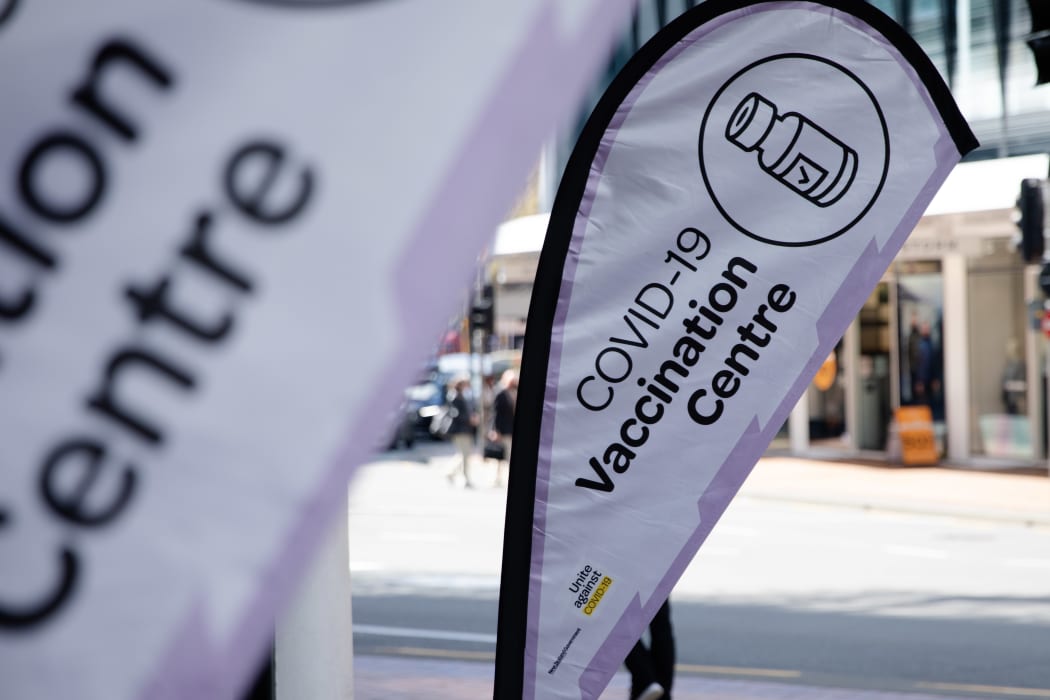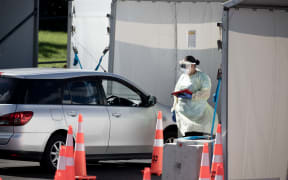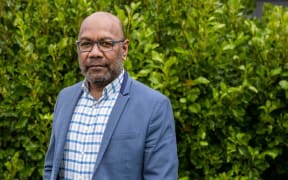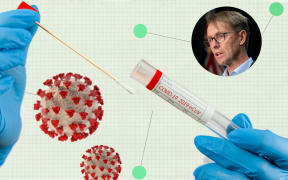Omicron has put the brakes on booster vaccine rates and communities lagging behind could stay there for some time.

Authorities recommend a stand down period of three months before recovered Covid-19 cases get their booster. Photo: RNZ / Angus Dreaver
After months of asking people to get boosted as soon as possible, health officials now have the challenge of telling some people who have had Covid-19 to wait.
While 73 percent of New Zealand's eligible population is boosted overall, pockets of low vaccination are evident in places like Counties Manukau District Health Board.
It has the lowest booster rate for Māori anywhere in the country, at 53 percent - despite 87 percent of the region's Māori population having had two doses.
That comes as a major frustration for Māori health leader Dr Rawiri Jansen.
"I think we should actually understand it as being a failure of our health system to deliver a vaccination programme that's equitable," he said.
In Māngere, Māori health provider Turuki Health chief executive Te Puea Winiata believed people were now too focused on Omicron to consider vaccination.
"Omicron hit us in February with a vengeance, and out in South Auckland we've had high numbers of people who've tested positive. In that kind of environment we've seen a reduction in the number of people coming forward for vaccination and actually being more concerned around testing," she said.
Today, after announcing another 14,128 infections, and a total of 943 people with Covid-19 in hospital, Northern Region Health Co-ordination Centre associate chief clinical officer Dr Anthony Jordan was keen to set out exactly why getting a booster is important.
"Over the last month here in Tāmaki Makaurau only 11 percent of hospitalisations have been in those who have had their booster. You are nine times less likely to end up in hospital if you've had your booster," he said.
However, fixing the gaps in the country's booster coverage could now take some time, with new advice for those who have had two doses then been infected.
Authorities recommend a stand down period of three months before recovered cases get their booster.
It marks a change in messaging after months urging people to get boosted as soon as possible.
Vaccinologist and University of Auckland associate professor Helen Petousis-Harris said it could slow down the overall rollout, but it wpuld ensure people's boosters were effective.
"A three-month delay can give a person who's had the Omicron opportunity to mature their immunity and boost later on," she said.
However, Winiata said health authorities did not want to put people off by sending mixed messages about when to get a booster.
As Covid-19 case numbers reach a peak in Auckland, she said her organisation was working on clear messaging and information for whānau, about getting a third jab.
"We're really hoping that it just gives a breather to whānau. To be able to get their heads around coming in to get their boosters. And for us to provide good advice around when that's going to be best for them," she said.
Dr Jansen said the amount of resources poured into the country's vaccination programme was gradually being dialled back.
But he said there was still a lot to do to achieve equity in the vaccine rollout.






